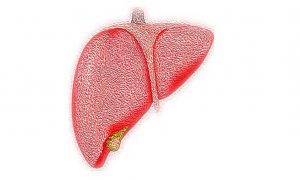Seemingly, it is a common man’s food but it has king-size benefits for your health and well-being. And while the guava may look like a humble fruit, its leaves, bark, flowers and bark have traditionally been used to cure many diseases. But what goes for it in today’s disease-ridden society is that is it is rich in dietary fibre, Vitamin A, Vitamin C , niacin, thiamin, riboflavin, antioxidants such as carotene and lycopene and minerals like calcium, phosphorus and iron.
Guava fruit is rich in polyphenolic compounds which exhibit antimicrobial properties. Its leaves have anti-fungal and anti-bacterial qualities. It is used as a bio-preservative in the pharma and food industries. In fact, it is the ideal fruit for disease management. Let’s look at its healing properties one by one:
DIABETES MANAGEMENT
Studies have shown that eating guavas on a regular basis can lower blood sugar levels. This fruit has a low glycaemic index of 12 to 24 and a glycaemic load of 1.3-5. The high fibre content means it keeps you fuller for a longer time and keeps you away from food cravings. This slow-burn effect of fibre means that you can balance out blood glucose and avoid sudden sugar swings.
CAN FIGHT CANCER
Guava is an excellent source of phytonutrients like lycopene, which has anti-tumour properties and protects us from cancer. Guava leaf extracts are even used in medication and can inhibit all kinds of cancer cells. But it is the flavonoid quercetin, which has strong cancer-fighting properties. A research in 2010 had shown enough evidence that the size of a tumour in the case of prostate cancer could be decreased through a guava extract.
GOOD FOR HEART HEALTH
Laboratory research has shown that guava leaf tea can lower LDL cholesterol and triglycerides while keeping the good cholesterol in balance. The tea was found to reduce blood pressure and heart rate. Several clinical studies have borne out the fact that those who drank guava leaf tea had lower total cholesterol, low-density lipoprotein levels and triglycerides after eight weeks. The tea leaves declog arteries. The potassium and fibre content of guava fruit helps to control blood pressure and blood lipids.
COMBATS BACTERIA AND VIRUSES
Guava leaf tea has strong anti-bacterial activities as confirmed by various studies. Due to the fruit’s high quercetin content, which is a natural antihistamine, it is even useful in allergies and bronchitis. Its rich vitamin C content and iron have been found to be very effective in treating cough and cold.
GOOD FOR GUT HEALTH
Eating guava is best for gut health. First, it lubricates the intestines and eases constipation, its soluble dietary fibre pretty much working as a laxative. That’s why most nutritionists recommend that guava be taken before meals. Guava had on an empty stomach in the morning is known to relieve symptoms of piles.
GUARDS MENSTRUAL HEALTH
A study in 2007, conducted in Mexico, found that guava leaf extract could reduce menstrual pain significantly compared with conventional treatments and placebo. Copper is good for maintaining normal haemoglobin levels and improving thyroid functioning. Manganese helps in activating enzymes.
WHAT’S THE BEST WAY TO HAVE GUAVA? WHAT’S THE RIGHT TIME TO HAVE IT
Guava is best eaten raw, complete with seeds and skin. Just cut it up into quarters and have it early in the morning or as a snack in between meals. Ideally it should be had in the morning as it cleans out the stomach given its fibre load and diet logic says that you should shift the food load to the earlier part of the day. Then you do not feel as hungry later.
When you add rock salt to the fruit, it increases your digestive power. Some people sprinkle salt and pepper to cut down its phlegm but it is best had naturally. You can even rustle up a quick fruit salad where guavas pack a punch.
One whole guava contains:
Calories: 37
Fat 0.5 gram
Cholesterol: 0 milligrams
Sodium: 1 milligram
Carbohydrates: 8 grams
Fibre: 3 grams
Sugar: 5 grams
Protein: 1 gram





































